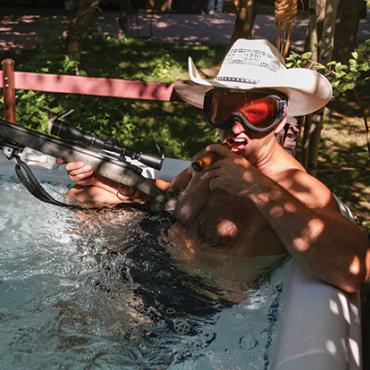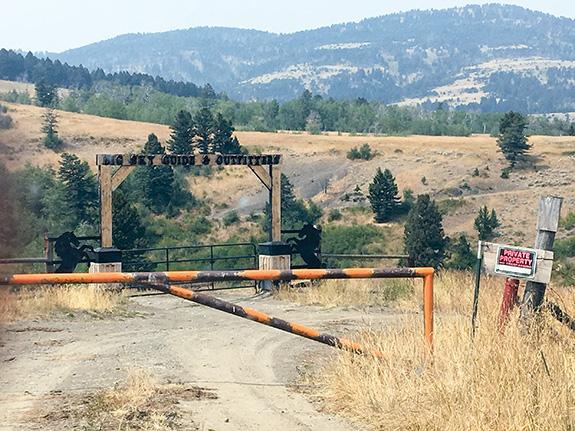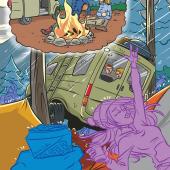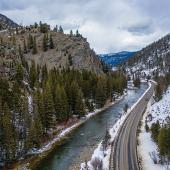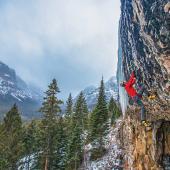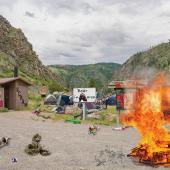Double-Dealin'
Liberty. Equality. Fraternity. The mantra of the French Revolution may well be applied to the current conflict over public-land access in Montana. The setting is certainly similar: on the one hand, an elite oligarchy shrouded in a nimbus of privilege; on the other, the masses, indignant at the increasing erosion of their own rights and the ongoing disregard for their interests.
Another likeness: abundant misinformation, most of it deceptive. Take the ubiquitous private-landowner refrain, for example: “You walking across my land is like me walking through your kitchen.” What? How is that, exactly? The only thing that’s like you walking through my kitchen, ma'am, is me walking through yours. Which is a far cry from me strolling through a remote forest a mile from your house, in order to gain access to my national forest beyond.
Here’s a more precise simile: me cutting across a landowner’s back forty is like him veering off the sidewalk and onto my lawn for a few feet. If I were to run outside and accost him, or call the police to report trespassing, I’d be branded a lunatic. Yet when landowners do those very things, it’s considered perfectly reasonable; they’re just exercising their rights.
And the law supports this inequity. When a private landowner has an inholding surrounded by public land, he or she has a legal right to access it. But when the reverse is true—the public owns an inholding surrounded by private land—no legal access is granted. Ditto for corner-crossing: to get from one private section to another, a landowner can drive a truck across public land, even if it's closed to motorized vehicles. But switch the roles, and the public can't even hop across the intersection on foot.
These are double standards, plain and simple. Landowners and politicians defend them by waving the sacred banner of property rights. But rights are only rights when they’re extended to all—in other words, fairly and equitably. Otherwise, they’re not rights, but privileges, granted to a few, denied to the many.
This much we know: respect begets respect. If private landowners want their property rights respected, they must respect the property rights of others. In this case, that means allowing members of the public to access their public land.
Liberty. Equality. Fraternity. Give people the liberty to hunt, fish, and hike in their national forest. Support equality by extending property rights to all, not just an elite few. When that happens, fraternity will arise: a mutual affection and respect for each other, based on our shared appreciation of these wondrous lands and waters in this magnificent place called Montana.


